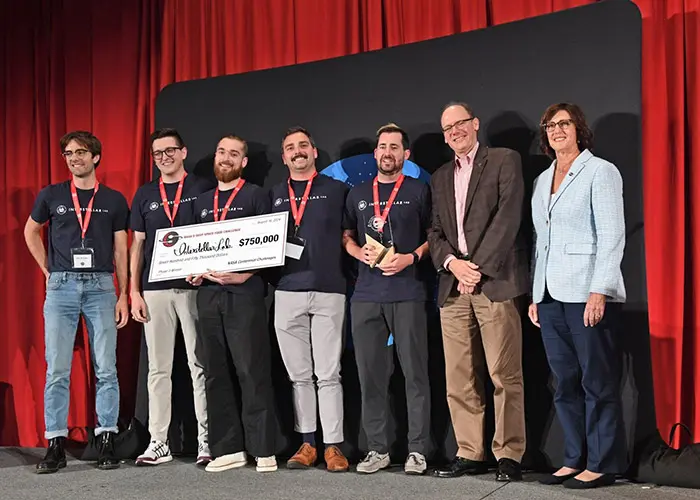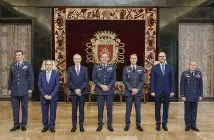
Interstellar Lab has taken home the USD750,000 grand prize in NASA’s Deep Space Food Challenge. Interstellar, a small business comprising team members from France, Texas, and Florida, developed a food system that combines several autonomous phytotrons and environment-controlled greenhouses that support a growth system involving a self-sustaining food production mechanism that generates fresh vegetables, microgreens, and insects necessary for micronutrients.
Two runners-up each earned USD250,000 for their efforts. California’s Nolux, a university team led by Robert Jinkerson, constructed an artificial photosynthetic system that can create plant and fungal-based foods without the operation of biological photosynthesis. Colorado’s SATED developed a variety of fire-resistant long-life customisable food.
NASA says the competitors’ technologies address the agency’s need for sustainable food systems for long-duration habitation in space, including future Artemis missions and eventual journeys to Mars. Advanced food systems also could benefit life on Earth and inspire food production in parts of the world that are prone to natural disasters, food insecurity, and extreme environments.
Since the challenge’s launch in 2021, more than 300 teams from 32 countries have participated by submitting clever food system designs. Four US teams competed in Phase 3, which began in September 2023. The Methuselah Foundation partnered with Ohio State University to facilitate the final phase of the challenge, which included a two-month testing and demonstration period held on the university’s campus in Columbus, Ohio. Each US team in Phase 3 was awarded USD50,000 and took their technology to Columbus for testing.
Throughout this phase, the teams constructed full-scale food production systems that were required to pass developmental milestones like safety, sensory testing, palatability, and harvesting volumes. Each team worked with a crew of Ohio State students who managed the testing and demonstrations for Phase 3 over the eight weeks. The data gathered from testing was delivered to a judging panel to determine the winner.
The challenge concluded at the Deep Space Food Symposium, a two-day networking and learning summit held on August 15 and 16. Throughout the event, attendees met the Phase 3 finalists, witnessed demonstrations of the food production technologies, and attended panels featuring experts from NASA, government, industry, and academia. The winners of the challenge were announced at an awards ceremony at the end of the symposium.
“Congratulations to the winners and all the finalist teams for their many years dedicated to innovating solutions for the Deep Space Food Challenge,” said NASA’s Amy Kaminski. “These food production technologies could change the future of food accessibility on other worlds and our home planet.”
NASA also selected and recognised one international team as a Phase 3 winner: Finland’s Solar Foods developed a food production system through gas fermentation that relies on single-cell protein production.
“The Deep Space Food Challenge could serve as the framework for providing astronauts with healthy and delicious food using sustainable mechanisms,” said NASA’s Angela Herblet.
The Deep Space Food Challenge, a NASA Centennial Challenge, is a coordinated effort between NASA and the Canadian Space Agency. Subject matter experts at Johnson Space Center and Kennedy Space Center supported the competition. NASA’s Centennial Challenges are part of the Prizes, Challenges, and Crowdsourcing program within NASA’s Space Technology Mission Directorate and managed at Marshall Space Flight Center in Huntsville, Alabama. The Methuselah Foundation, in partnership with NASA, oversees the United States and international competitors.





